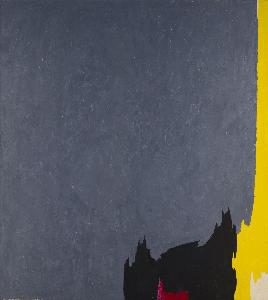“Did you ever look inside yourself and see what you are not?â€
—Flannery O’Connor
“Holy God, our lives are laid open before you: rescue us from the chaos of sin and through the death of your Son bring us healing and make us whole in Jesus Christ our Lord.â€
—Common Worship, the Church of England

Throughout this year’s Lenten season, I have been struck by the theme of honesty in my spiritual life. A good friend of mine has a degree in psychology and counseling, and she used to tell me that mental health is really about self-awareness – seeing who we truly are and being able to hold the good and the bad, the dark and the light, the best and the worst all together in one piece without lying to ourselves about who we really are. This holding together of the diverse parts of the self is what psychologists term ‘coherence’ – my friend is especially good at helping people talk through their own lives, look at their own stories, and come to places of deeper coherence where they can hold the whole story together, in one piece – finding better mental health.
I never would have connected musings on mental health with Lent, but the correlation between understanding my true identity, being honest with God, and finding greater mental health now seems obvious. Am I able to see who I really am, deep down, and see my need, my brokenness, my selfishness – while at the same time see the growth, the beauty, and the strengths? Can I be honest with myself about my whole story, hold it all in my hands, not pretend or shield or talk up myself or berate myself when I see it? Can I invite Christ into all the spaces of my heart, light and dark, fragile and rehearsed, seeing myself for all of who I am? Do I do the work that it takes to let others into those vulnerable spaces or cracked and dry crevices inside my heart?
Maybe most profoundly, as a Christ-follower, beloved and called, do I really believe – and live like I believe – the fundamental truth that my identity is not found through my hard work or my service, is not limited in my brokenness or my messiness – but my identity is caught up, already secure, already enough – in Christ? Do we share the honest, ongoing work that it may take us to really see ourselves rightly in Christ this way with others, encouraging them on their own honest way?
I am feeling a renewed freedom this Lenten season with being honest with myself, and with those I love, about who I am. Instead of a sense of worry about exposure, or working to cover up my weaknesses or needs, I am feeling freedom in bringing my honest self to the room. It is so much less work to lead, to serve, to minister, to parent – to live – with honesty and strength, when I bring all of me. Both my imperfections and my beauty, my uniqueness and my sometimes rough edges – it is all part of me. When I am courageous, present, and simply me, true to my whole story, then that is where growth and grace take root. I think there is something spiritually liberating about practicing being honest with ourselves as well – it primes me to see God, and then show myself to God, more honestly. I can cry out, God, here is where I need You, here is what I am limited in, here is where I am not able. When I am aware of my need that is when I can ask for help – and then I can also release the expectation that it is all up to me. What a gracious realization, what invitation and freedom that opens up in me!
I can sense from deep within my spirit that honesty with God grants me permission to be, to grow, and to heal – and I sense that so many others around me are also hungry for that grace, that space, that ability to simply, honestly, be. Be seen by God and by others. I sense the Spirit reminding me – my daughter, bring all of who you are, cracks and crevices and all, and repent – return to Me – refocus. I am here for you. When you see yourself as I see you, that is truth, that is wholeness – that is where you find abundant life.
“No one wants to take the descending path to that naked, unvarnished truth, with all its unacceptable humiliations. It is much more comfortable to stay on the level of the plain and ordinary… The reason Lent is so long is that this path to the truth of oneself is long and snagged with thorns, and at the very end one stands alone before the broken body crowned with thorns upon the cross. All alone–with not one illusion or self-delusion to prop one up. Yet not alone, for the Spirit of Holiness, who is also the Spirit of Helpfulness, is beside you and me. Indeed, this Spirit has helped to maneuver you and me down that dark, steep path to this crucial spot… Lent is a journey that could be called an upward descent, but I prefer to call it a downward ascent. It ends before the cross, where we stand in the white light of a new beginning.†—from Upward Ascent, by Edna Hong